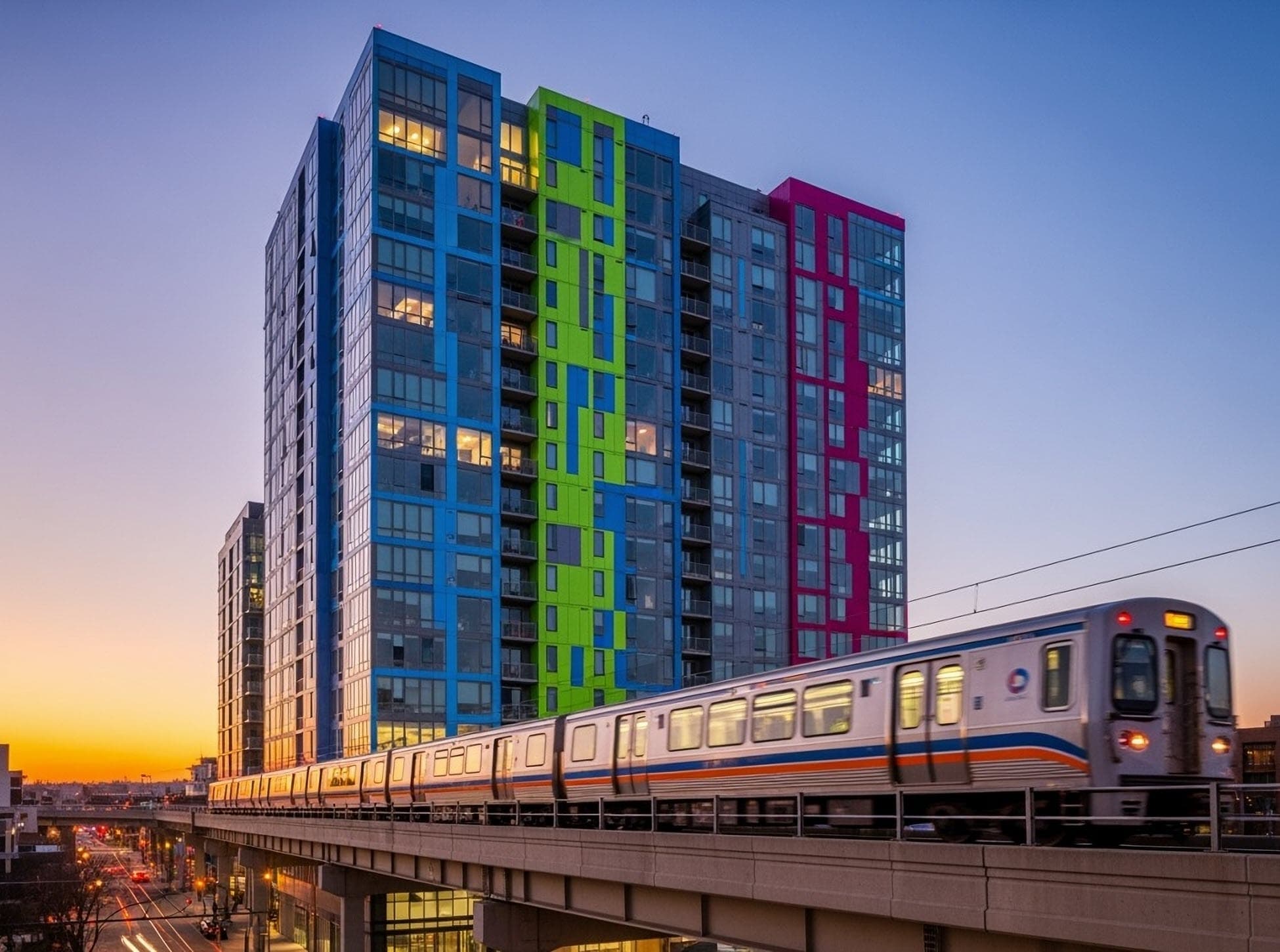
Update October 10, 2025: Governor Gavin Newsom has signed SB 79 into law.
California continues to press forward with housing legislation. One of the most significant proposals to date, the Abundant & Affordable Homes Near Transit Act (SB 79), recently cleared the California legislature. SB 79 aims to ease zoning restrictions, streamline approvals, and grant transit agencies new authority to build on their own property in order to unlock development potential around transit hubs.
If signed by Governor Gavin Newsom, SB 79 will reshape the development landscape across California’s cities, open doors for developers, and limit the ability of local governments and community groups to resist housing projects.
SB 79 proposes to add a new chapter to the Government Code (commencing with section 65912.155) to encourage transit-oriented housing development. SB 79 upzones land within a quarter mile of major transit stations and ferry terminals, which allows taller and denser projects than local zoning law currently permits. Certain projects within a half mile of transit stations would qualify for ministerial approvals, which reduces reliance on discretionary processes and streamlines environmental review under the California Environmental Quality Act (CEQA).
In practice, the new law could allow buildings up to 95 feet tall, densities of 120 units per acre, and floor area ratios of 4.5. Projects over 85 feet tall would be subject to prevailing wage requirements. Jurisdictions in very high fire severity zones could temporarily defer density increases in order to update fire codes, with flexibility to shift density into safer areas.
Cities that deny compliant projects would be presumed in violation of the Housing Accountability Act unless they can show a clear health or safety justification.
For developers, SB 79 promises faster approvals, fewer CEQA challenges, and new opportunities in transit-rich neighborhoods. For local governments, SB 79 will necessitate the revisions of general plans, zoning codes, and review procedures. Jurisdictions that do not comply with SB 79 risk legal exposure. For opponents of dense housing, the traditional tools of delay will be sharply curtailed for projects in qualifying locations.
After months of negotiation, SB 79 passed with bipartisan support, with a 41–17 vote in the Assembly and a 21–13 vote in the Senate. Governor Newsom has until October 12, 2025, to decide whether to sign SB 79 into law. Given the administration’s track record on pro-housing legislation, many expect approval.
If enacted, SB 79 will take immediate effect and create both opportunities and challenges across the housing market. Our Real Estate and Land Use attorneys are tracking developments closely and are ready to advise clients on how best to respond.
Patrick Ross, Senior Manager of Marketing & Communications
EmailP: 619.906.5740
Suzie Jayyusi, Senior Marketing Coordinator Events Planner
EmailP: 619.525.3818
Francisco Sanchez Losada, Marketing and Client Relations Manager
EmailP: 619.515.3225
Sanae Trotter, Senior Manager for Client Relations
EmailP: 650.645.9015